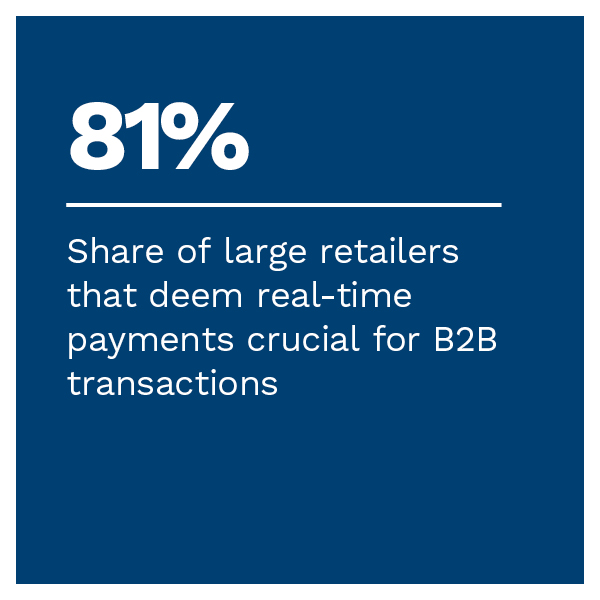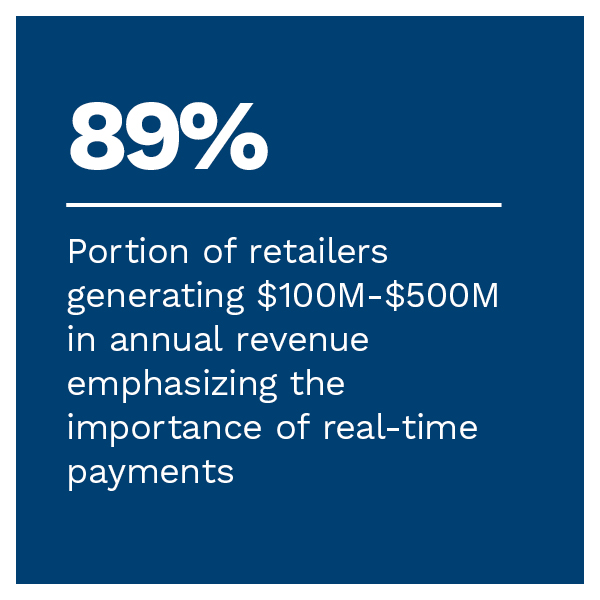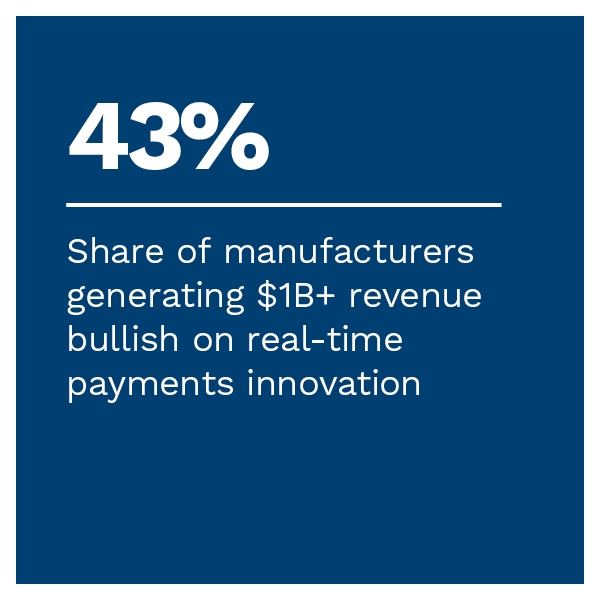Real-time payments are becoming a major player across industries.
Large retail, manufacturing and insurance firms recognize the significance of real-time payments for business-to-business (B2B) operations. Notably, 81% of large retailers identify the payment method as critical for making B2B payments.
Despite the broadly shared consensus on the benefits of real-time payments, adoption rates among these industries are varied. Many continue to rely on more traditional payment methods.
These are just some of the findings detailed in “The State of Real-Time Payments,” a PYMNTS Intelligence and The Clearing House collaboration. This report examines the state of play for real-time payments among large firms across four critical industries. It draws on insights from surveys of 125 executives from each industry. Executives from the real estate industry were surveyed between Dec. 16, 2022, and Jan. 12, 2023; those from the insurance industry between April 5 and May 5; those from manufacturing between May 3 and June 1; and those in retail between June 6 and June 26.
Other key findings from the report include:
Large firms across multiple key industries deem real-time payments essential.
Eighty-one percent of large retailers identify real-time payments as very or extremely important for their B2B transactions. Sixty-one percent of manufacturers and 60% of insurers agreed. The sentiment is highest among retail and manufacturing firms generating $100 million to $500 million in annual revenue, the smallest annual revenue bracket in our sample, with more than 8 in 10 saying real-time payments are highly important.
Traditional payment methods remain prevalent even as real-time payments gain traction.
Among large retailers, real-time payments narrowly beat automated clearing house (ACH) transactions. While large retailers processed 17% of B2B payments via real-time payments in the last year, they processed 16% of payments via ACH. Manufacturers and insurers make real-time B2B payments at similar rates, but ACH wins out in those sectors. Traditional methods like checks commanded a surprisingly strong share of overall B2B payments, with the real estate industry predominantly relying on checks for their B2B payments.
The real estate industry anticipates overhauling its approach to B2B payments.
Although virtually none of the large real estate firms in our study reported using real-time payments in the last year, 77% plan to adopt this method to make B2B payments in the next 12 months. Most expect to receive real-time B2B payments during this period, signaling a profound change in their approach to B2B payments.
Not offering real-time payments may leave businesses at a disadvantage. For example, 91% of manufacturers say making real-time payments has led to better B2B relationships. Many large firms also value real-time payments’ reliability and security features.
Download the report to understand the significance of real-time payments and why businesses across industries are making them a priority.